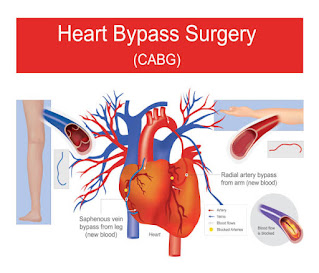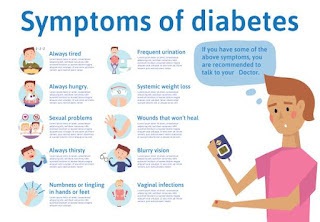Raw honey has lots of health benefits. People enjoy honey, but honey is a food that is made by bees for little bees. People have valued raw honey for its sweet taste for many years. A few scientists say honey is more than a sweetener. But it also has medical advantages. However, there is little proof for a portion of its medical uses.
Raw honey directly comes from a bee colony. A few honey makers go the substance through a coarse channel to eliminate foreign matter, but it remains unprocessed food. The majority of the honey sold in stores goes through a warming process to make it less sticky and simpler to filter.
Unwanted fermentation can be caused if the honey is processed at a very high temperature that pasteurized honey and destroys yeast cells present in it. Primarily honey is sugar. It is higher in calories than the normal white sugar used for cooking or baking. And we may need it less if we are using it as a substitute because it is sweeter. Additionally, honey adds flavor that white sugar doesn't have.
A tablespoon of honey nutritionally contains:
- Fats 0 grams
- proteins 0 grams
- Fiber 0 grams
- Carbohydrates 17 grams
- Calories 64 grams
- Sugar 17 grams
Some vitamins and minerals are also present in honey which is in trace amounts. These are:
- Zinc
- Potassium
- Iron
Processing does not affect the nutritional value or antioxidant levels. Scientists found that raw honey is not better than processed honey in its health benefits.
1. Raw honey is valuable in Weight Management:
Did you realize you can involve raw Honey in Weight management? As per the popular author and nutritionist Mike McInnes, honey burns fat in the body even when you are resting or sleeping. Honey is one of the best food sources which helps in losing weight. Specialists prescribe having a spoonful of honey before getting to bed. Early in the morning, you can also consume a spoon of honey with warm water on an empty stomach. Having this early in the morning helps in increasing the metabolism which helps in reducing the weight faster. Your overall health can also be improved by taking honey in the morning and it feels refreshing all day.
2. Raw honey helps in Nourishing your skin and face:
Due to the nourishing and moisturizing properties of raw honey, it is very useful for your skin. For dry skin, honey is a very good moisturizer that is natural and it is very easy to apply to your skin. Raw honey not only moisturizes your dry skin but also unclogs pores. Dry lips during winter can also be cured by applying honey. For skin tone, correction honey masks are also used by some people. Honey is also a natural antiseptic. Hence it is valuable for the treatment of wounds, cuts, infections, and burns.
3. Raw honey helps in strengthening the immune system:
A sore throat can be cured by using raw honey which is an uncountable medical benefit of raw honey that naturally relieves an irritated throat. Infections that are caused by bacteria, viruses, and fungi can be cured by honey, due to its bacteria-fighting and antioxidant properties. Scientists and doctors have reported that a lot of antioxidant elements are present in buckwheat honey. And when we consume this daily, then it’s very beneficial for boosting immunity. That’s why honey is known as the best immunity-boosting food. It is generally advised to consume honey before breakfast or even gym routine to get an additional kick of energy for the entire day. Immunity in children is also improved by consuming honey, as it works as a cleaning toner.
4. Health benefit of raw honey as a natural sleeping aid:
If you have trouble falling asleep. You should try a drink made of honey and warm milk just before going to bed. Many people use this drink that helps them to sleep. This drink is very simple to make. You simply add a teaspoon of honey into a glass of hot milk and enjoy it.
5. Natural remedy for dandruff:
Do you have any idea about how helpful honey for hair can be? Honey is one of the most incredible regular home remedies for dandruff. It nourishes dry hair as well as gives you soft and smooth hair. You can also utilize honey and lavender with green tea to stop hair fall. You should simply blend 2 tablespoons of Honey in with an equivalent measure of vegetable oil and apply it to your hair. Keep this hair mask on for 15 minutes, and afterward, wash it off.
6. Helps to heal wounds:
Due to the anti-oxidant, antibacterial and antifungal properties of raw honey, it is used to heal wounds. After any skin injury, microbes that live on your skin can penetrate and infect the injury site. Honey has been found to kill these microorganisms.
7. Helps in boosting memory:
It is very important to eat foods that help in making our mental health strong and in boosting our memory. Raw honey has lots of other benefits and it is the best food to boost your memory. Honey not only increases your power and memory as well as it makes you a healthy individual. Honey helps in preventing metabolic stress and helps quiet and relieve the mind, which helps in boosting memory. The therapeutic and antioxidant properties of honey help to boost the brain’s cholinergic system and receding cells and circulation which is a cause of memory loss.
8. Home Remedy for Cough:
Raw honey is known to be one of the most mind-blowing home solutions for dry cough as well as wet cough. Doctors advise drinking a tablespoon of honey daily which can help in reducing irritation in the throat. Especially for kids, honey is preferred as a natural honey remedy for cough, as it helps to ease the nighttime cough, and helps in proper sleeping.
9. Helps in preventing and controlling Eczema:
Skin becomes itchy, red, and flaky during eczema, which causes discomfort. Typically, small kids and youngsters experience the ill effects of skin inflammation that can be treated with raw honey. This is another health benefit of raw honey. To overcome this problem you can make a mixture of raw honey and cold-pressed olive oil and then apply it to the affected area of the skin. Honey is a natural moisturizer that makes the skin smooth and dirt free. The dead skin cells can also be removed by applying a mask made from a mixture of honey and oats.





















.jpg)












